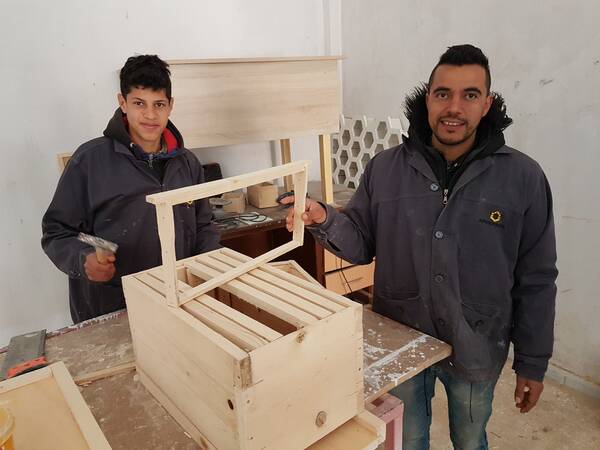Free e-courses on beekeeping, cactus pear, and more

Six e-learning modules in Arabic and French are now available free of charge for extension services officers and trainers on topics ranging from cactus pear production, beekeeping and supplementary irrigation among others.
In order to keep extension agents and trainers up to date with the latest knowledge on a variety of topics, ICARDA is providing 6 new e-learning modules.
To respond to the ongoing constraints posed by the global pandemic, in particular the inability to provide trainings and courses in person, the ICARDA project ICT2scale is offering free e-courses on topics ranging from cactus production, supplementary irrigation, beekeeping among others.
These short courses ensure that the latest knowledge is available to those at the agricultural ministry who support farmers in the drylands of Tunisia and elsewhere.
Available in Arabic and French, the 6 courses were developed by ICARDA, in collaboration with multiple Tunisian partners including AVFA (Agence de la Vulgarisation et de la Formation Agricoles), and INRAT (Institut National de la Recherche Agronomique de Tunisie).

E-courses available:
- Cactus production
- Supplementary Irrigation
- Creation and Development of a Project
- Andragogy
- Beekeeping
- Innovation Platforms
The 2-hour long e-learning course on cactus production, for instance, provides clear, concise and simple information on how to grow a cactus pear orchard, an incredibly valuable crop for dryland farmers’ livelihoods and income diversification.
In September 2020, AFVA and ICARDA organized five two-hour long in-person training sessions for extension and training agents in Tunisia to familiarize them with the e-learning modules’ content, navigation, and registration system. So far, 112 trainees have obtained their online certificates of completion after successfully answering the quiz at the end of each course.
ICARDA is grateful to its donors and partners the Deutsche Gesellschaft für Internationale Zusammenarbeit (GIZ), Institut National de la Recherche Agronomique de Tunisie (INRAT), and Agence de la Vulgarisation et de la Formation Agricoles (AVFA) for making this work possible.

